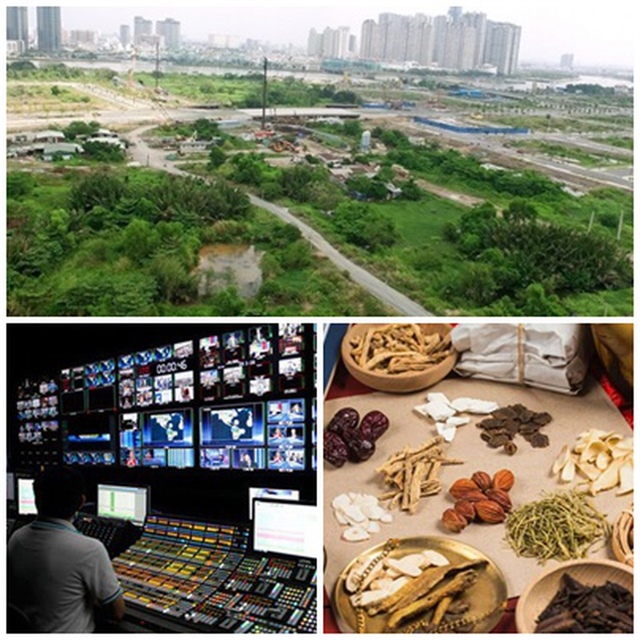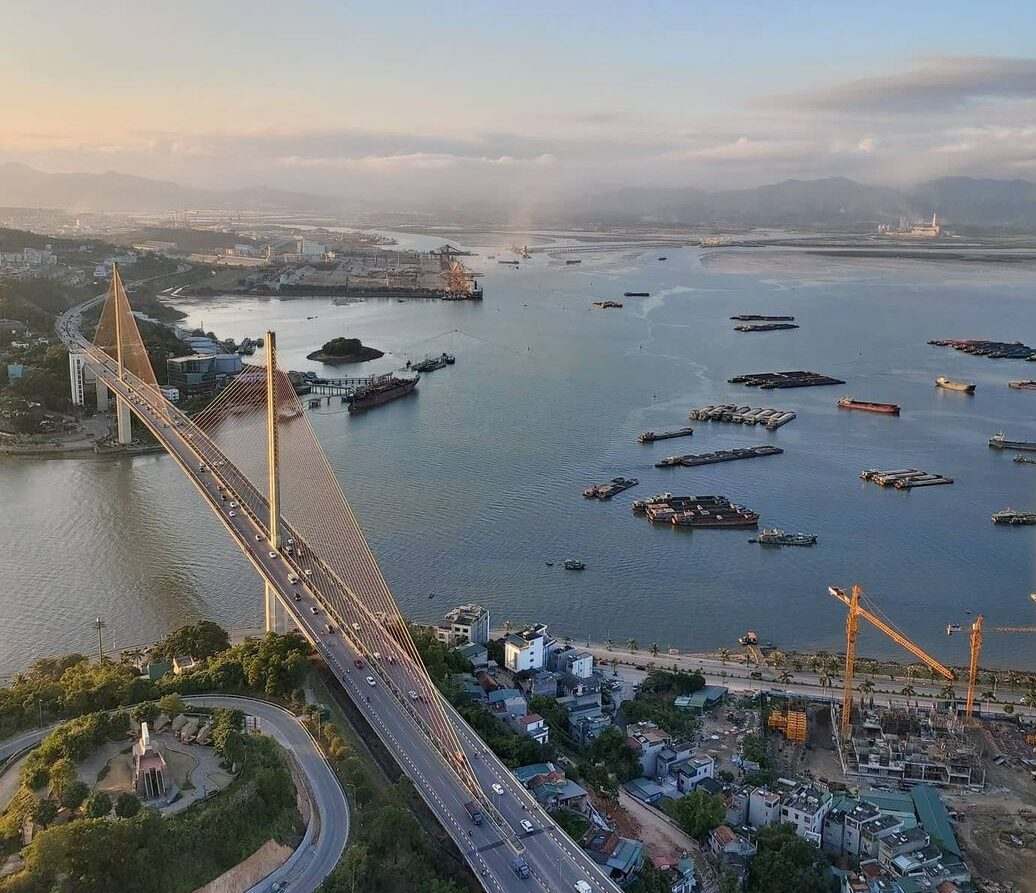
New policies taking effect from October 2024. |
Regulations on the management and exploitation of residential houses and land as public assets
The government has issued Decree No. 108/2024/NĐ-CP dated August 23, 2024, regulating the management, use, and exploitation of residential houses and land as public assets. The decree, which comes into force on October 15, 2024, entrusts local housing and land management organizations with the responsibility of managing and exploiting these assets for two primary purposes: a) Renting out houses (along with the associated land use rights), and b) Temporarily managing the assets while awaiting further processing in accordance with legal provisions.
Strict prohibition against exploiting social work for personal gain
The government has issued Decree No. 110/2024/NĐ-CP dated August 30, 2024, on social work, explicitly outlining six prohibited behaviors in this domain. They are as follows:
1. Providing, disclosing, or destroying personal information of subjects without their consent or that of their guardian or representative, except when requested by authorized individuals or entities as per legal regulations.
2. Refusing to provide social work services to subjects in urgent need of protection, except in cases of force majeure as defined by law.
3. Exploiting the provision of social work services for personal gain or engaging in illegal activities.
4. Exploiting social work practices to take advantage of government policies and support from organizations and individuals.
5. Collecting fees or benefits beyond the agreed-upon remuneration and expenses stipulated in the contract for the provision of social work services, unless otherwise agreed upon by the parties involved.
6. Exploiting social work practices or services to infringe upon the interests of the state, organizations, or individuals.
This decree takes effect on October 15, 2024.
Amendments and supplements to regulations on public asset management and utilization
The government has issued Decree No. 114/2024/NĐ-CP, amending and supplementing several articles of Decree No. 151/2017/NĐ-CP dated December 26, 2017, detailing the Law on Public Asset Management and Utilization. The new decree, which takes effect on October 30, 2024, modifies Article 3 of the original decree regarding the procurement of public assets for the operation of state agencies.
According to the new provisions, the authority, procedures, and processes for deciding on public asset procurement in cases where a project must be established are governed by relevant legal regulations. In cases that do not fall under this category, the decision-making authority for public asset procurement is delegated as follows:
– Ministers, heads of ministerial-level agencies, government agencies, and other central agencies (central agency heads) are authorized to determine the authority for deciding on public asset procurement to serve the activities of state agencies within the scope of their management.
– The People’s Councils at the provincial level are responsible for defining the authority to decide on public asset procurement for the operation of state agencies within their respective localities.
Regulations on house numbering in urban and rural areas
The Ministry of Construction has issued Circular No. 08/2024/TT-BXD, providing regulations on house and construction work numbering. The circular clearly defines the house numbering system for both urban and rural areas.
According to the provisions of the circular, houses along roads or streets will be assigned numbers using a natural number sequence (1, 2, 3…, n), with odd numbers on the left (1, 3, 5, 7…) and even numbers on the right (2, 4, 6, 8…). In cases where a house has entrances on two different roads or streets, the number will be assigned according to the road or street with the larger cross-section; if they have equivalent cross-sections, the number will be based on the road or street with the main entrance to the house or the road or street with continuous numbering.
The numbering direction for houses along roads or streets follows these guidelines: from north to south, from east to west, from northeast to southwest, or from southeast to northwest.
This circular takes effect on October 15, 2024.
15 fields in the information and communication sector where individuals with positions of authority are prohibited from establishing enterprises after leaving their posts
The Ministry of Information and Communications has issued Circular No. 09/2024/TT-BTTTT dated August 30, 2024, specifying a list of sectors and the duration for which individuals with positions of authority are prohibited from establishing or holding management or executive positions in private enterprises, limited liability companies, joint-stock companies, partnerships, or cooperatives after leaving their posts in areas under the management of the Ministry of Information and Communications.
As per the circular, the fields under the management of the Ministry of Information and Communications where individuals with positions of authority are restricted from establishing or holding positions in enterprises or cooperatives in their former areas of responsibility include:
1. Journalism
2. Publishing, printing, and distribution
3. Radio and television broadcasting
4. Electronic information
5. Foreign information
6. Grassroots information
7. Postal services
8. Telecommunications
9. Radio frequency
10. Information technology industry
11. Information technology application and digital transformation
12. Network information security
13. Electronic transactions
14. State-owned enterprise management, where the Ministry of Information and Communications acts as the representative owner
15. Programs, projects, and schemes in the aforementioned fields (1-14) that were directly researched, developed, appraised, or approved by individuals while they were officials, public servants, or employees.
This circular takes effect on October 15, 2024.
Guidelines on the processing of medicinal materials and traditional medicines
On September 6, 2024, the Ministry of Health issued Circular No. 14/2024/TT-BYT providing guidance on the processing of medicinal materials and traditional medicines. The circular outlines general processing methods for medicinal materials and traditional medicines, including preliminary processing, complex processing, and auxiliary materials.
Preliminary processing methods include: sorting, washing, soaking, steaming, slicing, cutting, sun-drying, and roasting.
Complex processing methods encompass: quick-frying, yellow-frying, yellow-frying with charred edges, yellow-frying with earth covering, black-frying, char-frying, wine injection, ginger injection, salt injection, vinegar injection, honey injection, bran-frying, rice-frying, and powder-frying.
Additionally, the circular provides specific processing instructions for several traditional medicines, such as: ba kích (morinda officinalis) with salt injection, cỏ nhọ nồi (rubia cordifolia) with ash-frying, đại hoàng (rhubarb) with vinegar injection, đảng sâm (codonopsis pilosula) with ginger injection, đỗ trọng (eucommia ulmoides) with black-frying, hoàng liên (coptis chinensis) with ginger injection, hòe hoa (safflower) with yellow-frying, mã tiền (cocculus) with wine soaking, thục địa (prepared rehmannia) and xuyên khung (notopteryx fruticosa) with wine injection, and ý dĩ (coix seed) with bran-frying.
This circular takes effect on October 28, 2024.
Rest stops must provide electric vehicle charging facilities
As of October 5, 2024, Circular No. 09/2024/TT-BGTVT dated April 5, 2024, issued by the Ministry of Transport, regarding technical regulations for rest stops on expressways, comes into force. The circular defines rest stops as infrastructure works belonging to the road transport infrastructure, constructed along expressways, national highways, or provincial roads to provide services to people and vehicles engaged in road transport.
The electrical, water, lighting, and communication systems of the rest stops must be integrated and complete, complying with the relevant regulations to ensure the safe, continuous, and stable provision of services to people and vehicles. The electrical system serving the charging stations for electric vehicles must be comprehensive and adequate to meet the needs of users and the stages of investment.
The minimum area for a parking space for a passenger car or truck is 40 m2, while that for a car is 25 m2. Clear markings must delineate each parking space. Dedicated parking spaces for people with disabilities must be provided, with a minimum area of 25 m2 each.
The restrooms at the rest stops must be designed to prevent dampness and humidity, eliminate foul odors, ensure ventilation, and maintain clean walls, floors, and fixtures at all times. The quantity and quality of restroom facilities must align with the specifications for each type of construction work.
Phương Nhi















